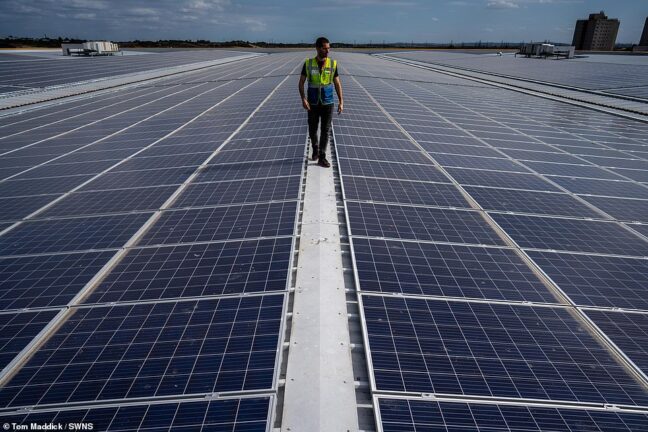During the first quarter of 2020, for the first time ever, UK electricity became lower carbon than gas.
Since 2013, dirty coal fired power stations have steadily been phased out in the UK, with electricity generated instead by renewables such as solar, wind and hydro. This has reduced the carbon intensity of electricity by a factor of nearly 3 in just seven years. On days when there is plenty of wind and sun, virtually all UK electricity is now generated from renewables.
Renewables have become dramatically cheaper too, so a couple of weeks ago, customers of Octopus Energy’s Agile tariff were actually being paid to use surplus electricity!
The availability of low carbon electricity influences our investment decisions at all levels. For example, it becomes attractive for new homes use an electric heat pump for heating, because these can be up to five times more efficient than a gas boiler. This also avoids the costs of connecting homes to the gas grid.
I’m thinking seriously about retiring our elderly gas hob and replacing it with an electric induction hob, because will be nearly twice as efficient. Induction hobs are safer too, as I discovered the other day after an unfortunate incident in which I set fire to a tea towel.
Our policy makers should encourage and support investments in renewable electricity generation, because this is the future, and will help reinforce the East of England’s position as a renewables powerhouse. The Hornsea windfarm in the North Sea is now the largest offshore windfarm in the world, and Hull is becoming an important manufacturing centre for the massive blades. At 75m long, these are longer than the wingspan of a 747.
As a recent IPPR report pointed out, investing in renewables generates more jobs than does investing in fossil fuels, so we should stop subsidising our declining oil and gas production (which is now a net cost to the economy), and instead invest in creating Zero Carbon infrastructure, such as renewables and electrification
This can also transform and clean up industry. Excitingly, the big Swedish steel makers are building a pilot HYBRIT plant which will use cheap renewable electricity to generate hydrogen, which can then replace coking coal in steel making. They should start trials this year, and plan that all Swedish steel will be fossil fuel free by 2045. As steel making currently contributes around 8% of global carbon emissions this is a big deal.
We have a big opportunity for a Green Recovery from the covid crisis: Last week the European Union proposed a €750 billion fund to help the bloc recover, with 25% of all funding set aside for climate action.
I just hope Brexit-Britain doesn’t get left behind.
